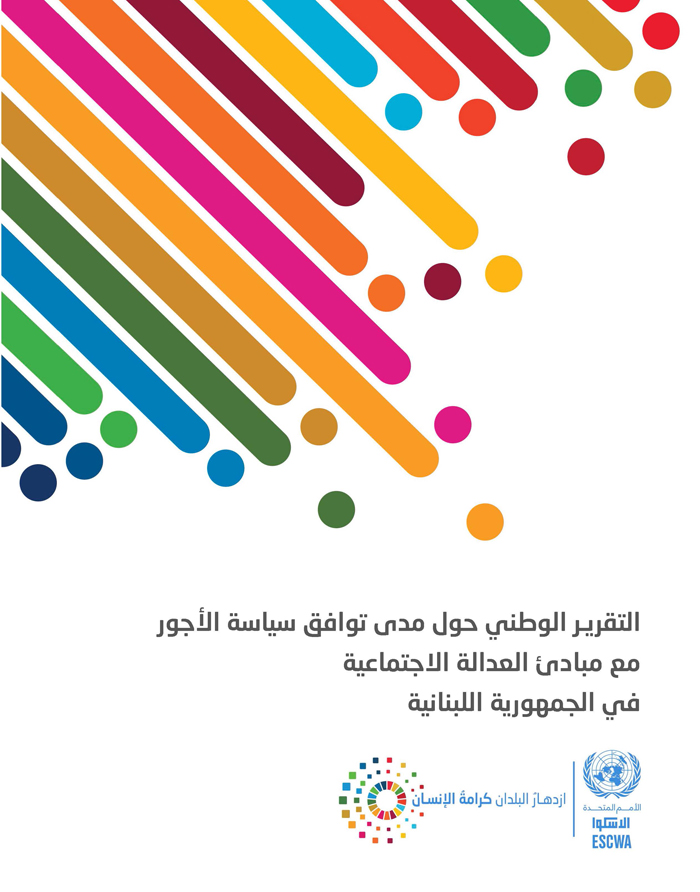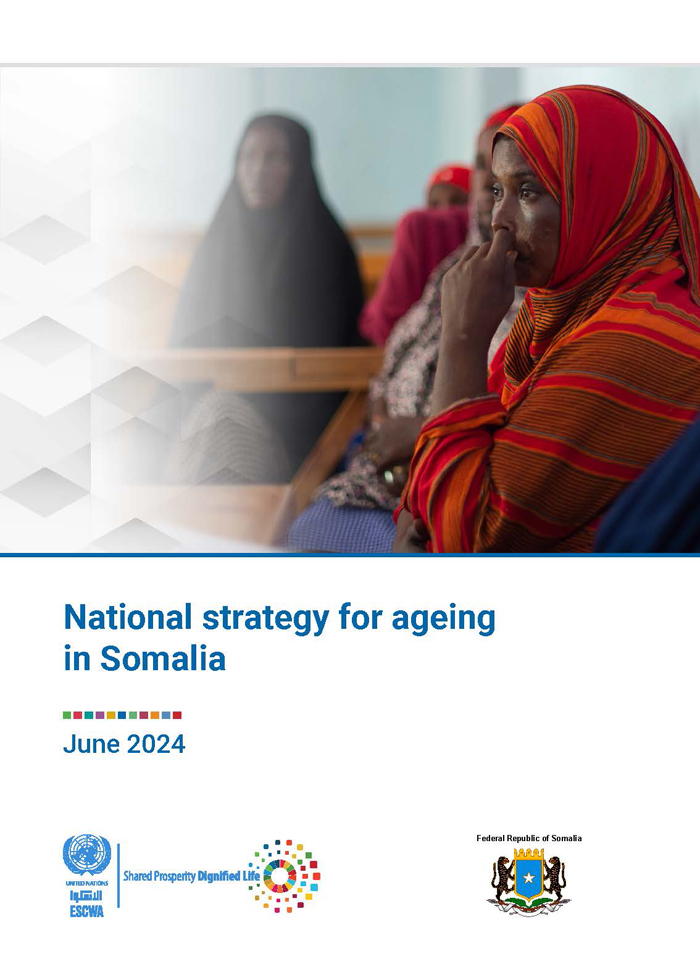
ESCWA Publication: E/ESCWA/CL2.GPID/2022/TP.24
Country: Lebanese Republic
Publication Type: Reports & studies
Cluster: Gender Justice, Population and Inclusive Development
Focus Area: 2030 Agenda, Governance & enabling environment
Initiatives: Promoting social justice
SDGs: Agenda 2030, Goal 8: Decent Work and Economic Growth, Goal 10: Reduced Inequalities
Keywords: Social justice, Wage policy, Lebanon, Economic growth, Social integration, Social protection, Technical cooperation, Human rights, Recommendations
National report on the compatibility of the wage policy with the principles of social justice in Lebanon
November 2022
The report measures the degree to which the national wage policy in Lebanon is compatible with the principles of social justice. In terms of formulation, implementation and follow-up, the wage policy in Lebanon meets 64 per cent of the requirements. However, the general vision, institutional and legal frameworks and the follow-up phase require more considerations for the principles of social justice. The assessment also showed some shortcomings in the formulation and implementation processes that must be avoided.
Social justice is explicitly mentioned in the preamble to the Lebanese Constitution, and in national legislation and strategies for social, economic and environmental development. Internationally, it has been enshrined in human rights conventions, international treaties and the 2030 Agenda for Sustainable Development. However, the enforcement of laws to achieve equality and promote equal opportunities for all remains partial and limited in efficiency. This is often because laws have not received final approval or because they lack implementation decrees. The process for formulating, implementing and following up on wage policy contains some gaps and does not yet meet requirements. The assessment did not find solid evidence that the approach is inclusive of all members of society, and the policy does not clearly reference the principles of non-discrimination or follow the principles of equality, equal opportunities and social inclusion among different societal segments when implemented. The policy also partially fails to target all social strata, especially the most vulnerable, such as seasonal and informal workers, farmers and artisans, and others working in the informal sector. In addition, migrant and refugee workers are often excluded from this policy in practice.
Related content
2030 Agenda
, Governance & enabling environment
,
The report measures the degree to which the national wage policy in Lebanon is compatible with the principles of social justice. In terms of formulation, implementation and follow-up, the wage policy in Lebanon meets 64 per cent of the requirements. However, the general vision, institutional and legal frameworks and the follow-up phase require more considerations for the principles of social justice. The assessment also showed some shortcomings in the formulation and implementation processes that must be avoided.
Social justice is explicitly mentioned in the preamble to the Lebanese Constitution, and in national legislation and strategies for social, economic and environmental development. Internationally, it has been enshrined in human rights conventions, international treaties and the 2030 Agenda for Sustainable Development. However, the enforcement of laws to achieve equality and promote equal opportunities for all remains partial and limited in efficiency. This is often because laws have not received final approval or because they lack implementation decrees. The process for formulating, implementing and following up on wage policy contains some gaps and does not yet meet requirements. The assessment did not find solid evidence that the approach is inclusive of all members of society, and the policy does not clearly reference the principles of non-discrimination or follow the principles of equality, equal opportunities and social inclusion among different societal segments when implemented. The policy also partially fails to target all social strata, especially the most vulnerable, such as seasonal and informal workers, farmers and artisans, and others working in the informal sector. In addition, migrant and refugee workers are often excluded from this policy in practice.



